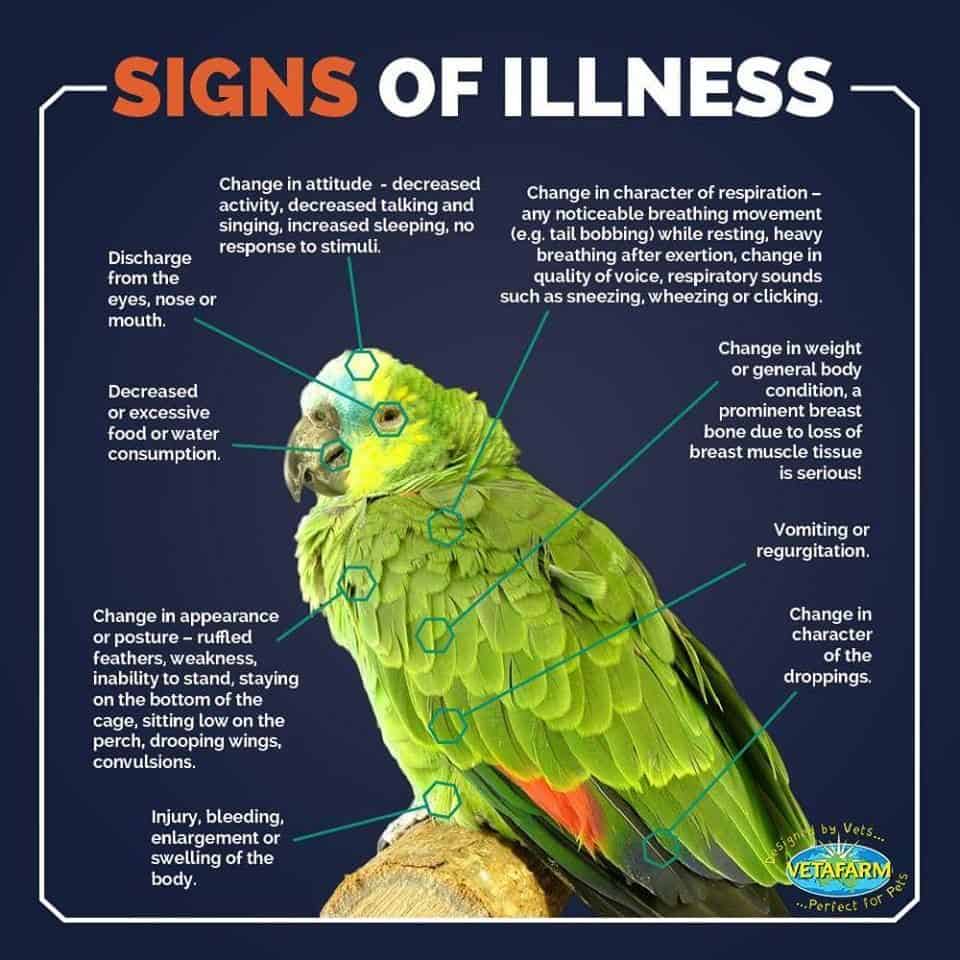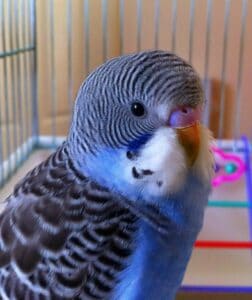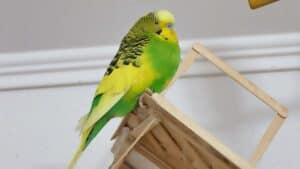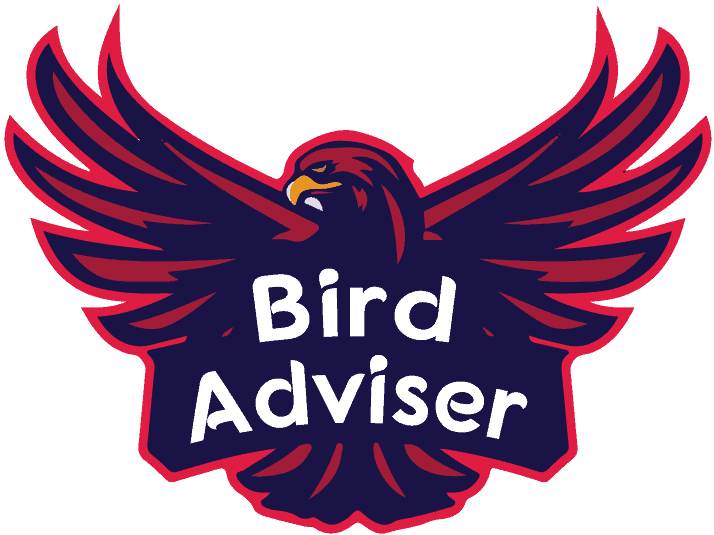If you’ve ever noticed your feathered friend shaking or shivering and wondered about the reasons behind this behavior, you’re in the right place.
In this article, I’ll be sharing my insights and knowledge to help you understand why your parakeet might be exhibiting these trembling motions.
From potential causes to what’s normal and when to be concerned, I’ll guide you through the facts and provide you with the information you need to ensure your parakeet’s well-being.
Let’s delve into the world of parakeet behavior and uncover the mystery behind those shakes and shivers.
Why is My Parakeet Shaking Or Shivering?
In case you are a parakeet owner and your bird is shaking or shivering due to an unknown reason, here are some commonly observed reasons that you can look for to check his health condition.
1. Illness
Parakeets who get sick are most likely to start to shake under some conditions.
Due to bad health, they tremble wherever they sit and stay unsteady even during their resting process.
This sort of conduct is particularly observed in a parakeet when it feels the absence of craving and runny eyes, cere, or nose.
You definitely have to see an avian vet under this condition.

A parakeet encountering any sort of seizure or shaking that will not stop needs a certified clinical expert straightaway.
Professionals indicate that a parakeet, when facing a health issue, may start to leave some signs of illness, and one of the major signs is its shivering condition.
Rush to any avian vet and get assistance.
2. Stress
Your parakeet may also be shaking due to a lot of stress.
Shivering can be characteristic and transitory conduct if your parakeet has been recently moved or shifted to a new place or home.
Other than this, some ecological factors may be terrifying your bird.
For instance, if your budgie shakes each time noisy music goes around in the house, no matter whether on the TV or your phone or even when your other pets start to make noise in the house, these activities can be the reason cause stress for your parakeet.
3. Preening
You may observe the parakeets shivering as a part of their normal routine.
They may be ruffling their feathers and shaking their body off sometimes at unmatched times.
This mostly happens after preening.
This shivering behavior is often led after you give your parakeet a fresh and good bath.
The parakeet starts to fluff its hair and reacts with a shivering behavior.
A sudden tremble can be the reason for temporary shivering behavior that is often linked to a recent cooling bath that you gave to your budgie.
If your budgie continues to exhibit excessive preening behavior and also starts to pick up any feathers on its feet, then you should consult an avian vet for assistance, as this might be a sign of stress.
4. New Environment
Change of environment can be the reason for the shaking behavior of your parakeets.
At the point when you initially bring a budgie into your home, change its needs like a new cage, add another budgie, or change its current living conditions in any space, you can cause them a little uneasiness.
You may see some shaking until your budgie adjusts to the changes.
Give your parakeet some time to get used to the environment, and he will be fine after a few days.
5. Happiness
Like most of the other pet animals who start to shake when their owner comes near to them in the house or when they are very happy, budgies also respond with this behavior.
After you have bonded well with each other, your budgie may get amazingly energized when you stroll into the house after work.
The care can frequently cause shaking in the body of a budgie.

Different things like their favorite food and toys can get them energized, as well.
It tends to be simple to tell if a parakeet starts to shake its body each time that occasion occurs, for example, each time it gets the treat.
6. Frustration
Budgie can get frustrated as they have most of the behavior just like human beings.
They can also disagree with other budgies or pets as humans do.
In case you have more than one budgie in the house, odds are you will hear them chirping sometimes, and they may be having an argument.

At the point when you do, you may see some shivering behavior in either one of the budgies because of strain and disappointment.
When the contention is finished, and everybody calmly inhales, the shaking is reduced.
7. Fear
Fear can lead to the shaking behavior of your parakeet.
Sometimes it can happen due to any material thing or a color that your parakeet may not like or is afraid of.
In case you notice your budgie’s entire body and wings shaking, there is a possibility that it is because of its fear of something.
Perhaps he may be feared by any other pet or loud noise around their cage.
Those are the most well-known reasons that parakeet gets terrified; however, they could fear something else too.
For example, a specific tone or smell could cause fear in them.
In case you notice that your budgie shivers each time you approach a specific shirt or wear a specific aroma, there is a decent possibility that those are things that it fears.
8. Injury
You never know if your parakeet might have injured itself in the cage or outside in the room.
He may start to shake or shiver due to injury and pain, and you might have to look deeply and see if everything is going alright with him.
It may be caused by falling from the perch hitting the cage hard, or something different.
In these conditions, you will need to see an avian vet and get recommendations about what to do when your parakeet is injured.
How to Check Sick Parakeet?
By spending time with your parakeet, you will get to know a lot about its behavior.
In case you can’t observe his normal behavior, chances are that your parakeet is sick for some reason, and you need to see a vet.
1. Illness Behaviors
When a parakeet is sick, you will observe that he starts to blink a lot, and his feathers may puff up, giving him a rough look.
Sick Parakeet would spend most of the day with his head tucked under the feathers as if he were sleeping.
A sick parakeet would also start to sit at the bottom of the cage with a shivering body instead of sitting on the porch.
This can indicate high fever and other health issues.
2. Check Appetite
In case you feel that there are sudden changes in color or the smell of a parakeet’s droppings, then there might be a problem with its appetite.
Sometimes, for easy observation, the mucus in the droppings and also a dark green color or streaks of blood in the droppings prove that your parakeet is sick.
Watery droppings are also indicators of avian illness that are very risky for the health of a parakeet.
Also, if the parakeet feels straining more than usual, he is facing constipation which can be a major issue and impact his health.
He may also stop eating.
3. Vocals and Enthusiasm
A parakeet is normally a very active and enthusiastic bird that loves to chirp a lot during the day, and you may observe your parakeet to be singing a lot.
But in case your parakeet suddenly stops singing and spends a lot of time in his cage staying calm and quiet, he may not be feeling well.
Such a parakeet needs some attention, and you need to visit an avian vet.
Conclusion
In conclusion, understanding why your parakeet is shaking or shivering is crucial for its overall health and well-being.
While occasional shivers might be normal, persistent or unusual shaking could signal an underlying issue that requires attention.
By observing your parakeet’s behavior closely, and considering factors such as environment, temperature, stress, and potential illnesses, you can better determine the cause behind the shaking.
Remember that a veterinarian’s expertise is invaluable in diagnosing any health concerns.
If you’re ever unsure about your parakeet’s behavior or well-being, seeking professional advice is always a wise decision.
Your dedication to your parakeet’s care and your efforts to ensure its comfort will undoubtedly contribute to a happy and healthy life for your cherished avian friend.
Here’s to many joyful moments spent with your parakeet!
FAQ
Is it normal for parakeets to shiver occasionally?
Yes, occasional shivering or trembling can be normal, especially if your parakeet is adjusting its body temperature. However, persistent or frequent shivering may indicate an issue that needs attention.
How can I tell if my parakeet is shivering due to illness?
If your parakeet is shivering consistently, check for additional signs such as changes in appetite, lethargy, fluffed-up feathers, labored breathing, or discharge from the eyes or nostrils. These could be indications of an illness requiring veterinary attention.
Can stress cause my parakeet to shake?
Yes, stress or anxiety can lead to shaking or shivering in parakeets. Changes in their environment, the presence of predators, or even sudden loud noises can trigger stress-related behaviors.
What environmental factors can lead to shaking in parakeets?
Cold temperatures, drafts, or sudden drops in temperature can cause parakeets to shiver. Ensure your parakeet’s cage is in a draft-free, comfortable location.
How can I help my parakeet if it's shivering due to cold?
Provide a heat source, such as a heat lamp or a heating pad placed under part of the cage, to keep your parakeet warm. Make sure the heat source is safe and monitored.
Last Updated on August 27, 2023 by Lily Aldrin
